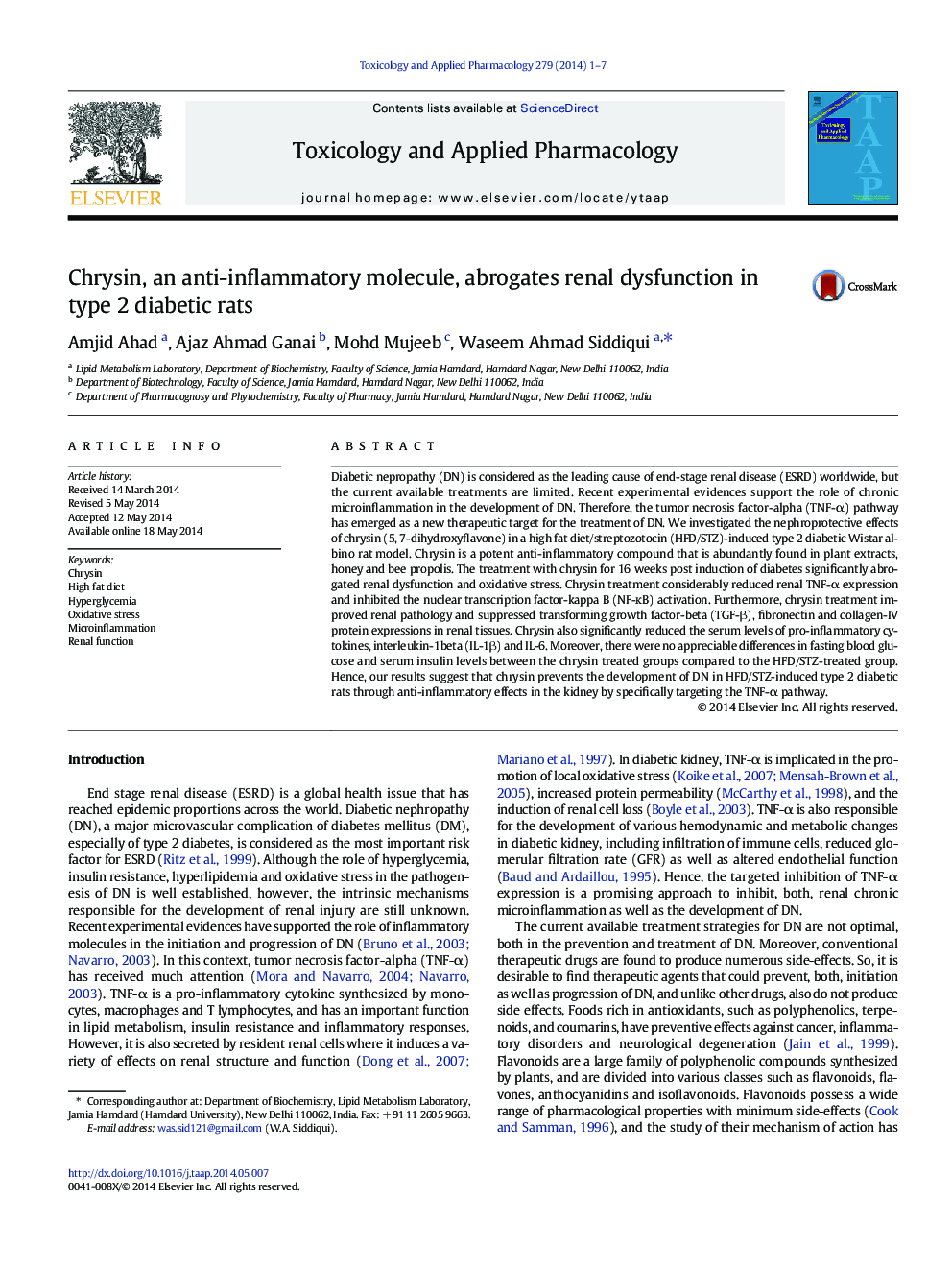| کد مقاله | کد نشریه | سال انتشار | مقاله انگلیسی | نسخه تمام متن |
|---|---|---|---|---|
| 2568569 | 1128466 | 2014 | 7 صفحه PDF | دانلود رایگان |
• Chrysin reduced renal oxidative stress and inflammation in diabetic rats.
• Chrysin reduced serum levels of pro-inflammatory in diabetic rats.
• Chrysin exhibited renal protective effect by suppressing the TNF-α pathway.
Diabetic nepropathy (DN) is considered as the leading cause of end-stage renal disease (ESRD) worldwide, but the current available treatments are limited. Recent experimental evidences support the role of chronic microinflammation in the development of DN. Therefore, the tumor necrosis factor-alpha (TNF-α) pathway has emerged as a new therapeutic target for the treatment of DN. We investigated the nephroprotective effects of chrysin (5, 7-dihydroxyflavone) in a high fat diet/streptozotocin (HFD/STZ)-induced type 2 diabetic Wistar albino rat model. Chrysin is a potent anti-inflammatory compound that is abundantly found in plant extracts, honey and bee propolis. The treatment with chrysin for 16 weeks post induction of diabetes significantly abrogated renal dysfunction and oxidative stress. Chrysin treatment considerably reduced renal TNF-α expression and inhibited the nuclear transcription factor-kappa B (NF-кB) activation. Furthermore, chrysin treatment improved renal pathology and suppressed transforming growth factor-beta (TGF-β), fibronectin and collagen-IV protein expressions in renal tissues. Chrysin also significantly reduced the serum levels of pro-inflammatory cytokines, interleukin-1beta (IL-1β) and IL-6. Moreover, there were no appreciable differences in fasting blood glucose and serum insulin levels between the chrysin treated groups compared to the HFD/STZ-treated group. Hence, our results suggest that chrysin prevents the development of DN in HFD/STZ-induced type 2 diabetic rats through anti-inflammatory effects in the kidney by specifically targeting the TNF-α pathway.
Journal: Toxicology and Applied Pharmacology - Volume 279, Issue 1, 15 August 2014, Pages 1–7
